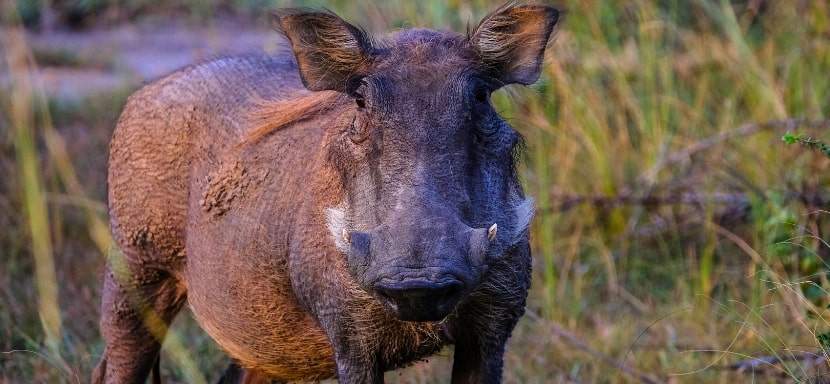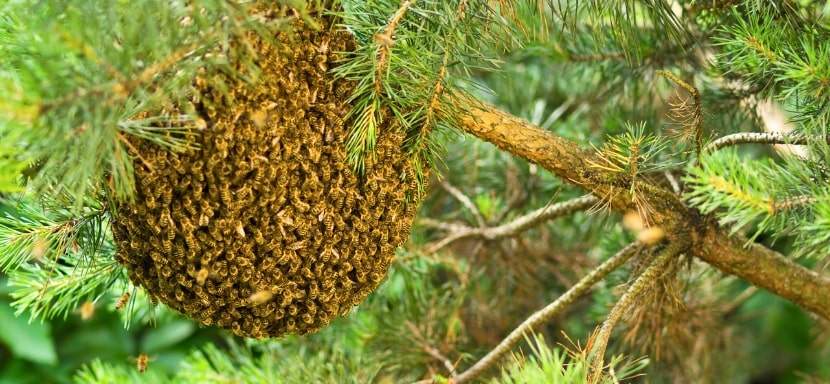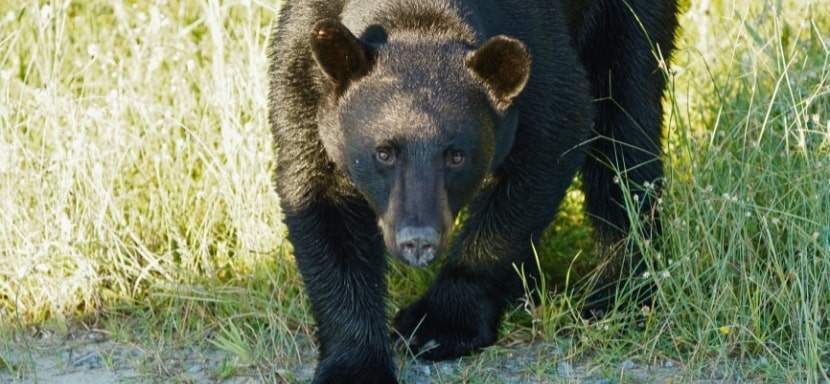How to Survive a Raccoon Attack

It’s a quiet evening, the moon is out, and maybe you’re taking out the trash or enjoying a night on your porch. And suddenly, out of the shadows, bam! There it is—those black-ringed eyes glowing at you like some creature from a raccoon version of “The Shining.” If you’ve ever wondered what to do when a raccoon decides to go full rogue on you, welcome aboard.
This guide will help you prepare for a situation no one really knows about—how to survive a raccoon attack. Don’t worry; with a few simple strategies and an understanding of raccoon behavior, you can easily handle this pesky predator. Because, let’s face it, if you can’t outsmart a raccoon, you might need more than just advice from this article.
Key Takeaways
- Act Calmly: Stay composed, back away slowly, and avoid sudden movements to prevent provoking the raccoon.
- Use Barriers: Shield yourself with objects like a backpack or trash can lid to block bites and scratches.
- Seek Medical Attention: Clean any wounds immediately and contact a doctor to prevent infections or rabies.
What is a Raccoon?
A raccoon is a small, nocturnal mammal known for its distinctive black “mask” around the eyes and ringed tail. Native to North America, raccoons are omnivores, meaning they eat plants and animals, from berries to small rodents. They are brilliant creatures, often seen scavenging for food in urban areas, particularly from garbage cans.
Though they may look cute, raccoons can be aggressive if cornered or threatened, especially when they feel their young are in danger. Their sharp claws, teeth, and ability to carry diseases make them animals to avoid when encountered in the wild or around homes.
10 Quick Tips on How to Survive a Raccoon Attack
Quick thinking and the right actions can prevent injury when dealing with a raccoon encounter. Here are ten essential tips to help you stay safe, protect yourself, and avoid escalating the situation if you encounter an aggressive raccoon face-to-face.
- Stay Calm: Panic can provoke the raccoon to attack. Take a deep breath and move slowly.
- Avoid Eye Contact: Raccoons see direct eye contact as a challenge. Look away to appear non-threatening.
- Back Away Slowly: Create space between you and the raccoon while giving it a clear escape route.
- Use an Object as a Shield: Hold out a backpack, jacket, or trash can lid to block potential bites or scratches.
- Make Noise if Necessary: If the raccoon charges, clap, yell, or stomp to intimidate it. Only do this if the animal won’t back off.
- Don’t Turn Your Back: Always face the raccoon while backing away to track its movements.
- Avoid Physical Confrontation: Punching or kicking will likely escalate the situation and make things worse.
- Wash Wounds Immediately: If scratched or bitten, clean the area with soap and water to prevent infections.
- Seek Medical Care After Bites: Even small bites can carry rabies, so always consult a doctor.
- Prevent Future Encounters: Secure trash cans, avoid feeding wildlife, and seal entry points around your home.
Why Would a Raccoon Attack?
Most raccoon attacks happen because:
- They feel threatened or cornered.
- They are protecting their young.
- They’re diseased, particularly with rabies.
- They’re hungry and see you as a threat to their food source.
It’s important to understand that raccoons won’t usually attack unless provoked. So, if you see one looking at you suspiciously, it’s best to back off.
Did You Know?
Raccoons are known to “bluff” during confrontations by hissing, growling, or charging at someone without following through with an actual attack. This behavior is meant to scare off potential threats—much like a warning shot—giving the raccoon a chance to escape without engaging physically. However, if the threat persists or the raccoon feels trapped, it may instantly switch from bluffing to full-on aggression.
How to React When a Raccoon Approaches
Stay Calm and Assess the Situation
The first rule when encountering an aggressive raccoon is to keep your cool. Raccoons, like some of your more manipulative exes, feed off chaos. If you start screaming or flailing around, the raccoon will panic or assume you’re about to fight it. Neither scenario works in your favor.
Give It Space to Escape
One of the worst mistakes people make is cornering the raccoon. If the animal feels trapped, it will lash out. Back away slowly, giving it a clear exit. Imagine you’re to convince someone at a party that you’re definitely not about to steal their last slice of pizza—be subtle and non-threatening.
Avoid Eye Contact
Raccoons, like many animals, interpret direct eye contact as a challenge. Look away, turn slightly to the side, and try to make yourself as uninteresting as possible. Think of it like trying to avoid the creepy guy on the subway—you want him to forget you exist.
What to Do If the Raccoon Charges
Use an Object to Shield Yourself
If a raccoon runs toward you, grab something—anything. A trash can lid, a backpack, a jacket—anything you can place between you and the animal. This gives the raccoon something to bite or claw besides your skin.
Make Yourself Look Big and Loud (As a Last Resort)
If the raccoon keeps coming at you, stand your ground, wave your arms, and shout. The goal is to appear bigger and scarier than you are, like when you tell someone you’re a “professional” at parallel parking, even though you aren’t.
How to Protect Yourself During an Attack
Stay on Your Feet
The worst thing you can do is fall over. Raccoons are surprisingly agile and will take full advantage of the situation. Keep moving if needed, side-stepping slowly instead of running in panic. Think of it as an awkward dance with a furry partner you didn’t ask for.
Avoid Punching or Kicking
Although your first instinct might be to fight back, this isn’t a UFC match. Trying to punch or kick a raccoon will only escalate the situation. Plus, raccoons have claws that will remind you why “playing nice” was the better option.
If You Get Bitten or Scratched
Clean the Wound Immediately
If you’re unfortunate enough to get bitten or scratched, head straight to the nearest water source and wash the wound thoroughly with soap and water. Raccoons can transmit serious diseases, so this is not the time to be lax about hygiene.
Seek Medical Attention
Even if the bite seems minor, you should see a doctor soon. Rabies is rare but deadly, and the only way to prevent infection is by getting immediate treatment. It’s better to be safe than sorry, especially when dealing with wildlife.
How to Prevent Raccoon Attacks
Secure Your Trash
Raccoons are notorious scavengers, so make sure your garbage cans are sealed tightly. This will keep them from seeing your home as an all-you-can-eat buffet.
Avoid Feeding Wild Animals
It might be tempting to leave food out for raccoons—after all, they have those cute faces! But feeding them encourages bad behavior and makes them less afraid of humans.
Block Off Access to Your House
Check for openings where raccoons could sneak into your attic, basement, or crawlspace. They love dark, warm places and will set up camp if you give them half a chance.
How to Handle a Rabid Raccoon Encounter
A raccoon with rabies will display unusual behaviors like drooling, staggering, or aggressive behavior during the day. If you encounter such an animal, do not approach it. Call animal control immediately and keep your distance.
FAQs
How can you tell if a raccoon has rabies?
Look for unusual daytime activity, drooling, or aggressive behavior. Rabid raccoons will act confused and might stagger.
What should you do if a raccoon is on your property?
If it isn’t posing a threat, give it space and time to leave on its own. Otherwise, contact Animal Control for assistance.
Can raccoons climb fences or trees?
Yes, raccoons are excellent climbers. They can quickly scale fences, walls, and trees to reach food or shelter.
Should you run from a raccoon?
No, running will only encourage the raccoon to chase you. Back away slowly while keeping your eyes on its movements.
Is it safe to keep raccoons as pets?
No, raccoons are wild animals and do not make good pets. Keeping them as pets is illegal due to disease risk in many places.
How dangerous are raccoon bites?
Raccoon bites can carry diseases like rabies or infections. Always seek medical care if you’ve been bitten or scratched.
Conclusion: How to Survive a Raccoon Attack
Surviving a raccoon attack isn’t just about knowing what to do when things go south—it’s about staying calm, thinking clearly, and not doing anything foolish. Remember to give the raccoon space to leave, use objects to protect yourself, and seek medical attention if you’re injured.
Raccoons might be small, but underestimating them can lead to big problems.
With caution and preparation, you’ll get through the encounter without any raccoon-related trauma. And if nothing else, you’ll have one heck of a story to tell at parties.
Uncommon Facts About Raccoon Attacks
Here are a few surprising and lesser-known facts about raccoon behavior during attacks and confrontations.
- Bluff Charges: Raccoons often fake an attack by charging or growling to scare off threats without making physical contact.
- Daytime Activity May Signal Danger: While raccoons are nocturnal, seeing one active during the day can indicate illness, including rabies.
- Pre-Attack Warning Sounds: Raccoons may emit a unique chirping or growling sound before becoming aggressive.
- Group Behavior During Conflict: Although raccoons are solitary, mothers with cubs may act aggressively in groups to protect their young.
- Raccoon Hands Are Highly Dexterous: They can open doors, latches, and even containers, increasing the chance of human conflict when scavenging.
- Disease Transmission Even Without Bites: Raccoon saliva and feces can carry harmful parasites like raccoon roundworms, posing a risk without direct attack.
- Zig-Zag Attacks: Raccoons may move unpredictably in a zig-zag pattern when attacking to confuse predators or threats.
- Territorial Confrontations: Urban raccoons fiercely defend their ” territory, ” often seeing humans or pets as intruders.
- Adaptation to Urban Areas: Raccoons in cities are more likely to confront humans, having become bolder due to regular exposure.
- Calming Down Takes Time: Once provoked, a raccoon can remain agitated for a long time, making it unsafe to approach even after it stops attacking.
More Wild Frontier Scenarios
How to Survive a Mountain Lion Attack
Learn how to survive a mountain lion attack with practical steps to protect yourself and stay safe in. Surviving a…
How to Survive a Wild Boar Attack
Encountering a wild boar is like meeting your ex at a grocery store—unexpected, unnerving, and, in most…
How to Survive a Swarm of Bees
Surviving a bee swarm might sound like a scene out of a movie, but it’s a real concern for those who…
How to Survive a Skunk Spray
Getting sprayed by a skunk is a smelly situation that no one wants to find themselves in. However, if…
How to Survive a Bear Attack
Surviving a bear attack involves more than just reacting during an encounter; it requires understanding bear…
Recent Survival Posts
How to Survive a Layoff
Layoffs feel personal—even when they’re not. One day, you’re responding to Slack messages and forwarding…
How to Survive a Drug Test
I never imagined I’d be so emotionally invested in a paper cup. But there I was, standing under the fluorescent…
How to Survive an Interrogation
If you’ve ever been caught in the crosshairs of an overly enthusiastic mall cop or stared down by someone…
How to Survive a Nightclub Shooting
Nightclubs pulse with life—lights flashing, music pounding, bodies packed tight on the dance floor. It’s a place to…
How to Survive a Bachelor Party
A bachelor party is a delicate mix of celebration, chaos, and questionable decision-making, wrapped…
More Wild Frontier Survival Scenarios

How to Survive a Wild Boar Attack
Encountering a wild boar is like meeting your ex at a grocery store—unexpected, unnerving, and, in most cases, best avoided. Yet, wild boars aren't interested in your baggage or drama; they're just trying to mind their own business—unless they think you're a threat....

How to Survive a Swarm of Bees
Surviving a bee swarm might sound like a scene out of a movie, but it's a genuine concern for those who love the outdoors. Imagine this: you're hiking on a beautiful sunny day, enjoying the tranquility of nature, when suddenly you hear a low buzzing sound that...

How to Survive a Skunk Spray
Getting sprayed by a skunk is a smelly situation that no one wants to find themselves in. However, if you do end up as a target of this defensive mechanism, knowing how to handle the aftermath can make a huge difference. Let's explore some practical steps and advice...

How to Survive a Bear Attack
Bear Attack Survival Tips and Strategies Though rare, bear attacks can occur because bears remember food locations for years and may silently track humans to assess threats or follow scents. Surviving a bear attack involves more than just reacting during an encounter;...

How to Survive a Cicada Infestation
Cicada Infestation Survival Tips and Strategies Cicadas have fascinated humans for millennia. These insects are known for their distinctive life cycles, particularly the periodical cicadas that emerge in massive numbers every 13 or 17 years. The earliest recorded...
More Survival Scenarios

How to Survive a Layoff
When the Floor Falls Out: The Reality of a Layoff Layoffs feel personal—even when they're not. One day, you're responding to Slack messages and forwarding emails. Next, you're staring at your monitor as it logs you out... for good. Whether it's a restructuring, a...

How to Survive a Drug Test
The Cup, The Room, The Truth I never imagined I’d be so emotionally invested in a paper cup. But there I was, standing under the fluorescent hum of a strip-mall clinic, trying to recall the last time I ate a poppy seed bagel. That’s the thing about drug tests—they...

How to Survive an Interrogation
If you've ever been caught in the crosshairs of an overly enthusiastic mall cop or stared down by someone in a uniform with a clipboard and a glare, you’ve felt it — the chilly fingers of interrogation anxiety. And while most of us imagine interrogation scenes as...

How to Survive a Nightclub Shooting
Nightclubs pulse with life—lights flashing, music pounding, bodies packed tight on the dance floor. It’s a place to escape, feel the rhythm, and lose yourself in the crowd. But that same energy can turn deadly in seconds, transforming a night of fun into one of the...

How to Survive a Bachelor Party
A bachelor party is a delicate mix of celebration, chaos, and questionable decision-making, wrapped in the noble intention of sending the groom off into married life with a night he’ll (hopefully) remember. It’s a ritual as old as time—well, as old as men deciding...

How to Survive Your First Time at the Gym
Walking into a gym for the first time can feel like stepping into an alien world. The machines hum with purpose, the regulars move confidently, and you’re left standing there, clutching your water bottle, wondering whether you’re in the right place—or on the right...

How to Survive a Worldwide Communications Breakdown
Imagine waking up to silence. Your phone doesn’t buzz, your email won’t load, and even your local radio station crackles with static. A worldwide communications breakdown has hit. What next? For many, this doomsday scenario may sound like the opening lines of a...

How to Survive a Flash Flood While Driving
Surviving a flash flood while driving requires quick thinking, calmness, and a solid plan to ensure your safety. Preparation can make all the difference between a close call and a catastrophe in emergencies like this. This guide provides practical advice to protect...

How to Build an Emergency Kit
Emergencies don’t knock politely at the door. They barge in, uninvited, like a distant relative with a penchant for drama, turning your world upside down without warning. Whether it’s a power outage, a natural disaster, or an unexpected evacuation, the key to staying...

How to Protect Yourself From Insects in the Wild
There’s nothing like being out in the wild—birdsong echoing through the trees, the fresh scent of earth, and a deep sense of peace that makes you think, “Ah, this is what life is about.” But then comes the buzzing. Mosquitoes, ticks, and flies swoop in like uninvited...
